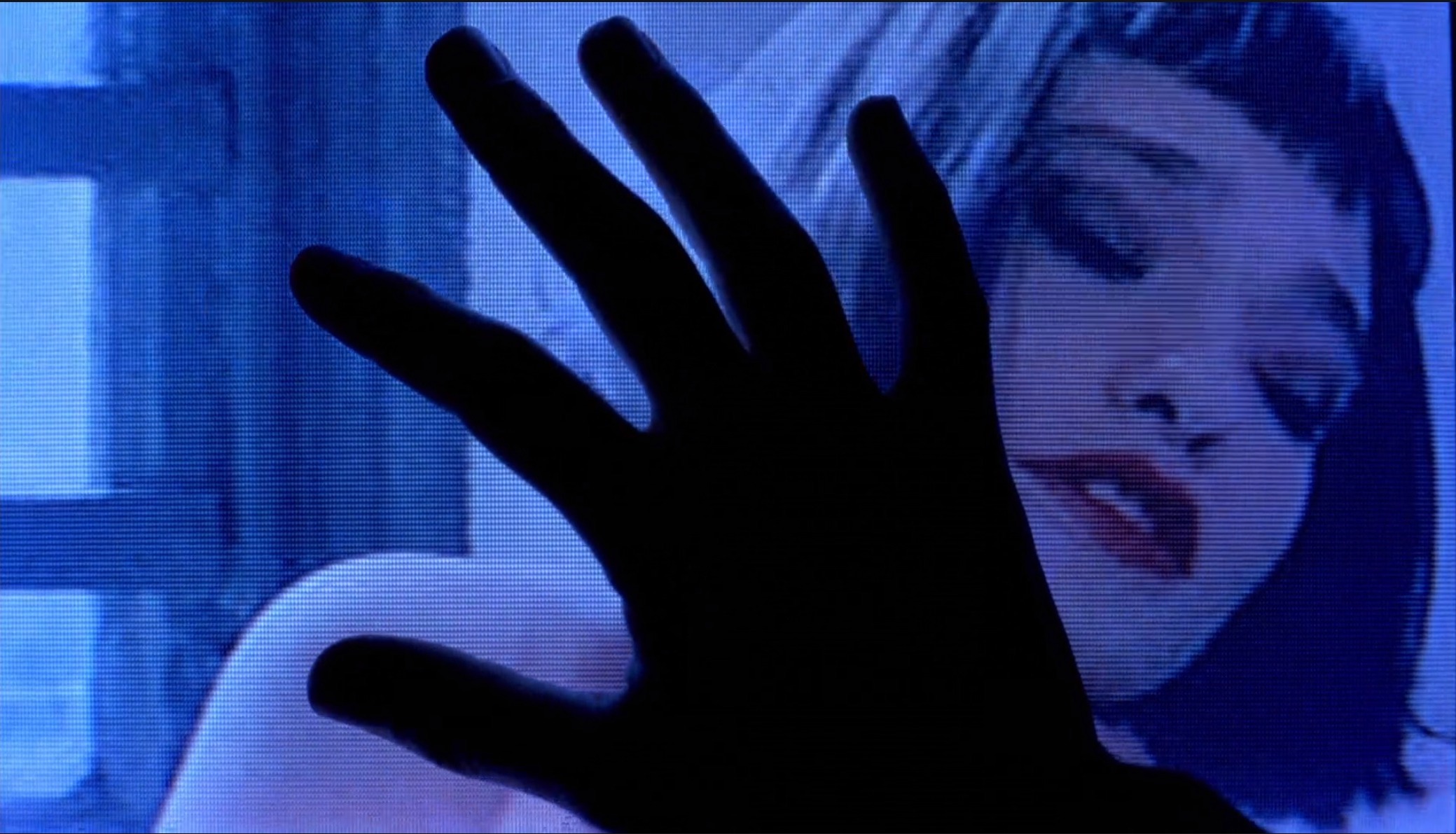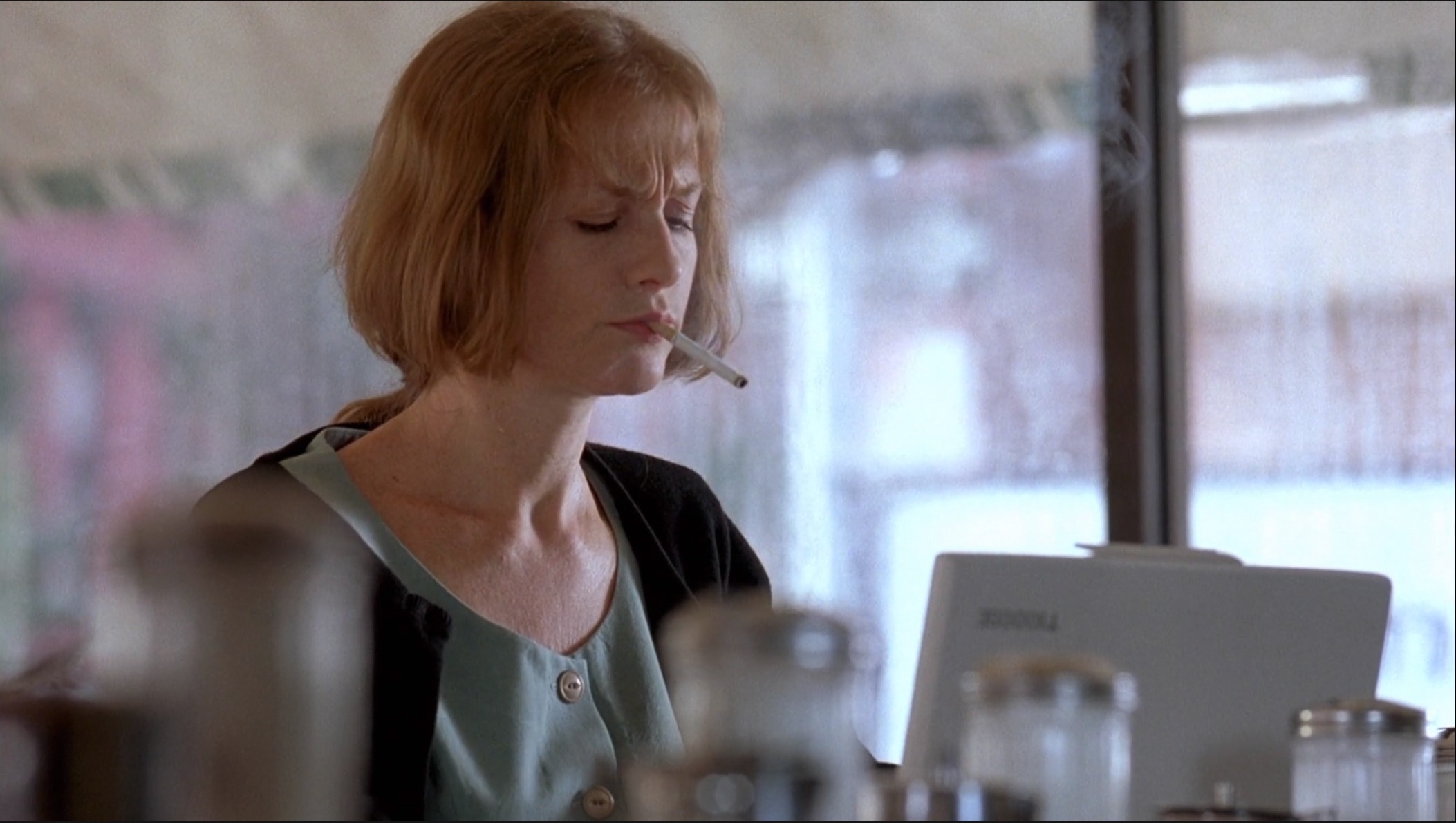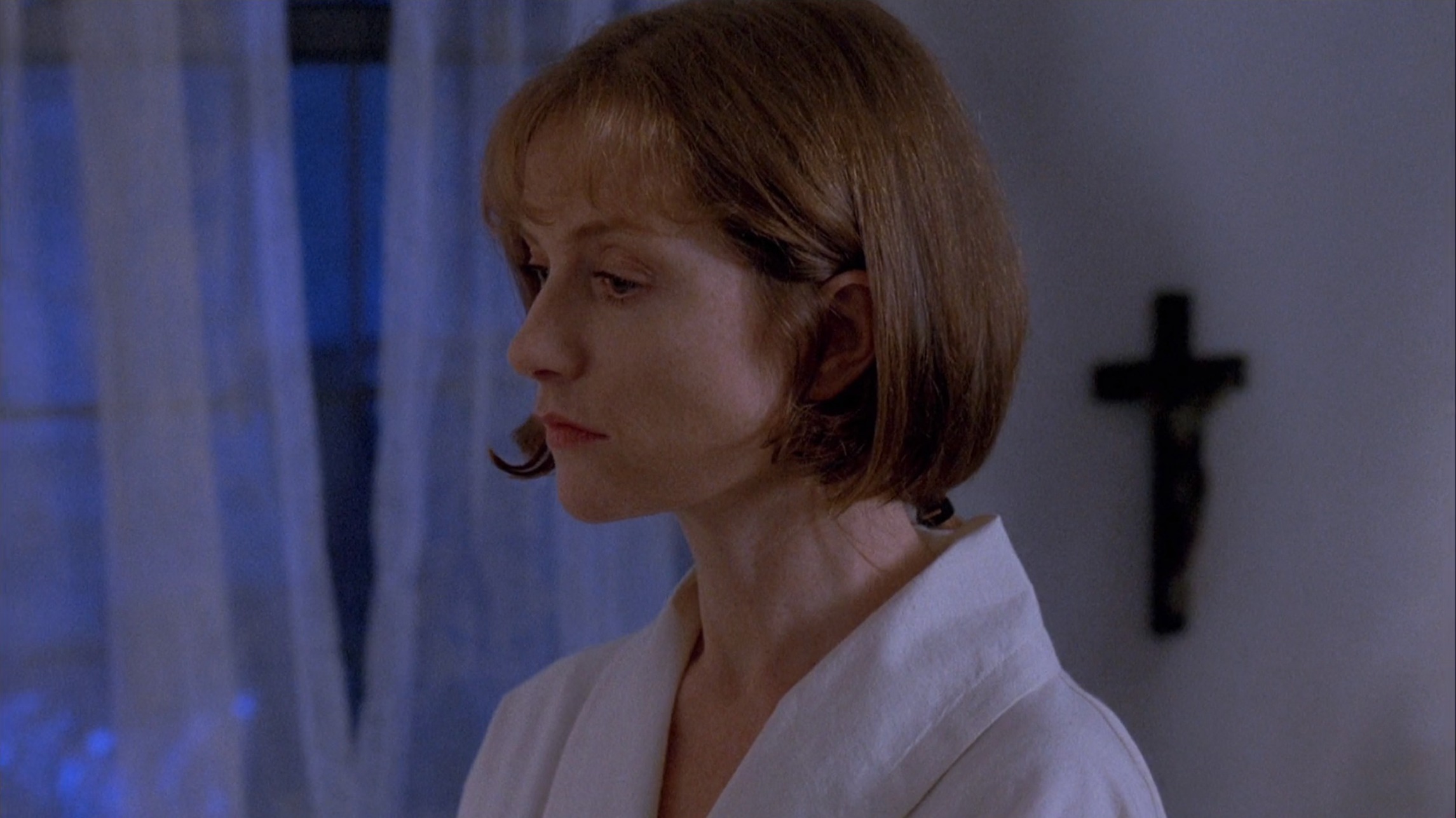Feeling blue in the post-digital world

The Criterion Channel, a streaming service of art movies, is doing a retrospective of Isabelle Huppert. So last night I watched again “Amateur” (1994), which is the movie that made me fall in love with the charming French actress who since yesterday has become, hélas, a 70 year-old. Happy birthday, Isabelle.
Despite the name and the actress, “Amateur” is not a French but an American production, directed by Hal Hartley, an indie film director from New York who was in vogue in the 1990s, a bit in the line of Jim Jarmusch — I believe that Jarmusch is still around, but Hartley seems to have disappeared.
Anyway, there is a scene in which two characters makes some corny joke about “floppy disks”, and another one in which they discuss the lease of cellphones — back then they were huge, and hugely expensive. And it made me think of how much communication technology has changed in the last years, and how it affected us.
I am old enough to remember floppy disks of the 5 1/4 variety, which were actually floppy, both inside and outside. No, scratch that. I am older than floppy disks. I actually remember when video games had to be loaded into my ZX Spectrum by means of a cassette tape that played noise for 5 minutes. Only later the floppies came. Then we had the 3 1/2 disks, which had a stiff case protecting the inner disk and thus were not floppy, but which are the most remembered variety, so much so that they have become icons for “saving” even for people who’ve never seen a real one. Then we had CDs, DVDs, pen drives… All those things went the way of the dodo, of course, and now all forms of storage, including the movies we watch, are mostly in the Cloud.
By the way, the first time I watched “Amateur”, almost thirty years ago (!), was in a small local art movie theatre, another thing that seems to have gone almost extinct.
In some ways, the digital age made things easier or more comfortable, but in other ways, it made things less relevant. Sitting in the dark as the première of an important movie was about to start was akin to some form of ritualistic experience that streaming cannot really reproduce. Many of the authors and artists that collaborated with my small magazine, Geist, are happy that it is published in print. Anyone can publish in a blog or social media, and you may even reach more people that way, but a paper magazine or book has a real, concrete, in-your-hands existence that a digital version does not.
Even the comfort and easiness of the digital world — is it really irreplaceable? Sure, things like Google Maps help us to find our way around. And yet, when I was a film student in London, 25 years ago, and there were no smartphones, everyone could find their way using the London A-Z, a portable booklet mapping all of London streets.
Kids these days grow up watching Tik Tok and YouTube videos. In fact they seem to do little else. They rarely go out to play. If anything, they invite their friends in to watch videos together, and I suppose the parents prefer it that way. It’s dangerous to be outside, right? And they don’t really even watch cartoons anymore. They watch people doing stupid things in 30-second videos. Sure, they still do other things occasionally, but the video watching takes a lot of their time. But I suppose that the memories that they will cherish when they grow up, will not be of the time spent watching those videos, but of a trip somewhere, or the occasional fun with their friends in a park, or learning to ride a bicycle, or memorable family situations. The digital experience is as easy as it is forgettable.
Think about photographs. I have but a few images of my childhood, taken with an old film camera, that you had to take to the lab to develop and wait to see if they came out alright. But the few ones I have, I cherish, and in some cases I can even remember the feelings of the moment associated with the image. Nowadays, we have tons of photographs stored in a SIM card for every single day of our lives, but we hardly look at them, once taken. They are easily forgettable. The more pictures we have, the less relevant they become.
Now, I don’t want to sound like an old curmudgeon complaining about “kids these days”. We grow up in the environment that we do, and that’s it. There’s little anyone can doo about it. Unless we go to live with the Amish, it is impossible to escape. And in some ways, it’s fine. We grow out of it. But sometimes I wonder if all this technology is not affecting us in deeper ways.
For instance, the other day, some Irish politician announced that he and her wife had had a “genderless” baby. That is, they said that they would not tell anyone its sex. They would raise the poor creature “genderless”, and wait until the child was 3 or 4, when supposedly the child him/her/itself would tell them: “I am a boy”. Or: “I am a girl”. Or: “I am a gender-fluid trans-male-lesbian”.
Now, this is probably just some kind of bizarre virtue-signalling that they might not even follow through with, but I can tell you that, regardless of your beliefs about the transgender issue, if 30 years ago someone said that he would raise a “genderless baby” and wait for the child to be 3 years old to “assume his gender”, this person would be considered insane and not fit por political office, perhaps not even for cleaning the streets.
And so I am thinking if digital technology is not playing a huge part in all this, further disconnecting us from the realities of the natural world, and thrusting us into a “matrix” where “reality” is just another form of chosen fantasy. After all, we can no longer even recognize what is a “deep fake” and what isn’t. It is unclear if lots of things that are shown in the media as “real” were even shot with a camera, or just made from pixels out of scratch.
With AI, CGI and the increasing blurring between the limits between our “real” and our “mediated” experience, and even the merging of technology with our own bodies, as people like Yuval Harare and Klaus Schwab seem so keen to force, things will certainly get worse. Some company in Sweden already got thousands of people to install a chip under their skin, so that they can open the doors of their office without the need of a key or card. Think about it. People agreed to be tagged like cattle because “I don’t need to carry keys around anymore.” If they agree to that, they will agree to anything, really.
Now, I am not necessarily anti-technology, as I am here writing in a portable computer to later post this text online, and I have just watched the movie I’m writing about on a streaming service instead of on an old VHS tape.
But, sometimes, I do feel nostalgic for a time when none of this existed, and we seemed to know with more clarity what was real and what was not.





Jarmusch rose as Hartley faded. Loved them both, especially Hal’s repertoire of actors. Tragic end for Shelley and sad that Lowensohn doesn’t seem to have aged as well as Huppert.
“The digital experience is as easy as it is forgettable.” Bingo!
Didn’t see Amateur but saw Isabelle as a sex addict in School Teacher. She was always willing to take risks w/ her image, playing against type.
I think most Americans know Huppert from Haneke’s “The Piano Teacher” (is this the same film you’re mentioning?), which isn’t really my favourite film of hers, to say the least… But I don’t like Haneke’s movies, even though he’s a critics’ darling.
She was good in her early films as sexy girl with Depardieu (like “The Valseuses” — although in that one we see more Miou-Miou, another beloved French actress, but a very young 17 year-old Isabellle makes plays a small, memorable part.
Yeah, Piano Teacher is what I meant. Haneke was absorbing and shocking at first but after a bit I found his sensibility perverse, as w/ the Piano Teacher.
The story of the Irish politician with the “genderless” child is a real sign of our times.
Here’s something else I can’t figure out: 99.9% of the medical profession has completely betrayed us for the past three years… and yet pregnant women I know, including those who were wise enough not to get vaccinated, will still go to get multiple ultrasounds done during their pregnancies.
I imagine one of the biggest reasons is because they want to know the gender of their child.
I wonder how they are going to continue to sell this expensive (tax payer funded of course!!) and needless procedure (I’m from a generation who weren’t “ultrasounded” in the womb and I don’t think we missed out on anything!) once it has become beyond the pale to gender your baby?
That’s true. But I think it’s not just to know the sex of the baby but also to check if everything is alright and “see” it (and maybe post the picture on social media). It is expensive and perhaps not so necessary, but is it harmful? That, I have no idea. Lots of procedures are unnecessary and some of them are harmful.